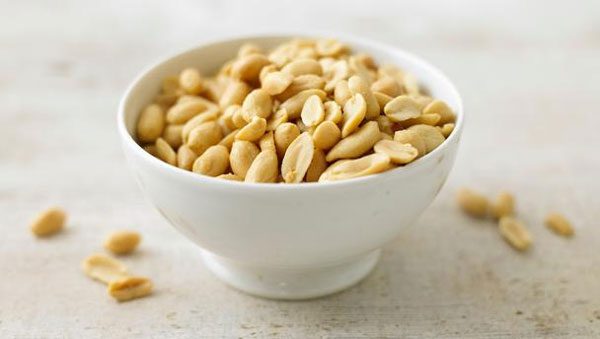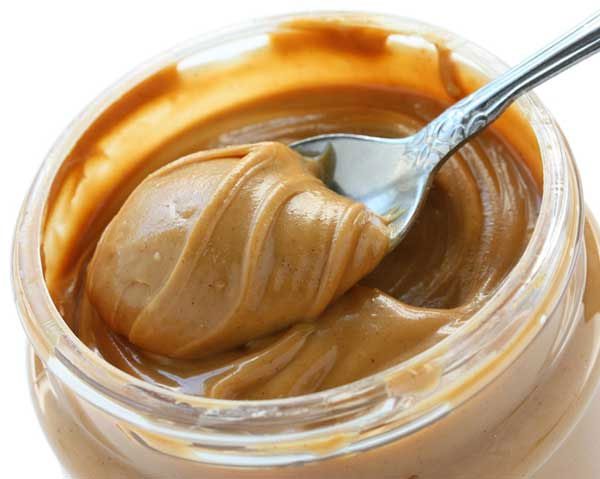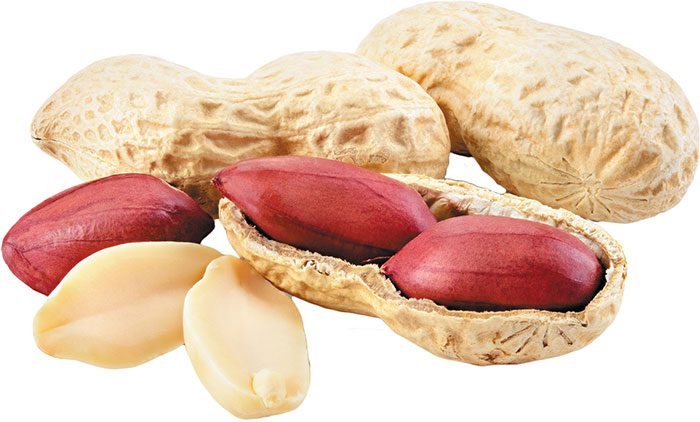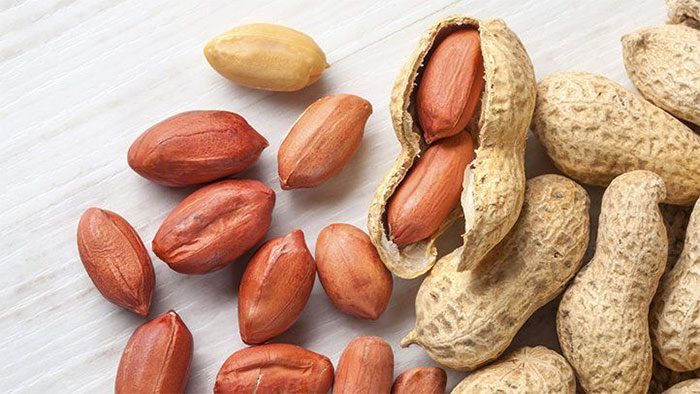Peanuts (groundnuts) are small seeds packed with nutritional value, protein, and wonderful health benefits that you might not know about.
The Surprising Benefits of Peanuts
- Benefits of Peanuts
- 1. Peanuts Help Control Cholesterol Levels
- 2. Support in Preventing Wrinkles
- 3. Help Lower Blood Sugar Levels
- 4. Effective in Reducing Depression
- 5. Rich in Energy
- 6. Support in Preventing Various Cancers
- 7. Beneficial for Hair
- 8. Reduce the Risk of Gallstones
- 9. Good for Teeth and Bones
- 10. Beneficial for Women’s Health
- 11. Protect Heart Health
- 12. Blood Sugar Control
- 13. Healthy Digestion, Protecting the Stomach
- Who Should Avoid Eating Peanuts
- Notes on Eating Peanuts
Peanuts not only offer numerous health benefits but are also delicious, versatile in preparation, and affordable. Not everyone knows how nutritious these tiny seeds are. According to the United States Department of Agriculture, 100g of peanuts contains: 567 calories, 25.8g of protein, 8.5g of fiber, 4.5mg of iron, 92mg of calcium, 18mg of sodium, and 705mg of potassium. Peanuts are also rich in vitamins E, K, B1, B3, B9, selenium, lecithin, and choline.
Health experts suggest that eating peanuts at any time of the day is beneficial. However, there is one optimal time to consume peanuts to maximize their effects: early in the morning on an empty stomach. The American magazine Cooking Light has frequently highlighted the benefits of eating a small handful of peanuts in the morning or using peanuts to prepare breakfast.
Benefits of Peanuts
1. Peanuts Help Control Cholesterol Levels
Peanuts are rich in monounsaturated fatty acids, which help lower bad cholesterol levels in the body, thereby preventing heart disease and coronary artery disease. These naturally delicious peanuts should be included in your daily diet.
2. Support in Preventing Wrinkles
You may not know, but peanuts are also great for the skin as they are high in vitamin E, which helps reduce wrinkles. Studies suggest that eating boiled peanuts helps protect the skin from free radicals.

Peanuts are companions for health. (Photo: BBC UK)
3. Help Lower Blood Sugar Levels
Patients with diabetes can still enjoy peanuts as a friendly food option. Peanuts are rich in manganese, which helps absorb fats, and thereby regulate blood sugar levels.
4. Effective in Reducing Depression
Peanuts are rich in tryptophan, which helps release a special chemical that reduces symptoms of depression, uplifting your mood. Next time you’re feeling down, just snack on a few delicious peanuts.
5. Rich in Energy
Peanuts provide an instant energy boost due to their high levels of antioxidants and minerals. You don’t need to worry about weight gain when snacking on these nuts, as peanuts are also suitable for weight loss due to their lower starch and fat content compared to other nuts.
6. Support in Preventing Various Cancers
Peanuts contain p-coumaric acid, which helps reduce the risk of stomach cancer. They can also lower the risk of colorectal cancer in women by up to 40%. Incorporating peanuts or peanut butter into your daily diet in moderation is a comprehensive way to support your health.

Peanut butter with bread for an energy-rich breakfast. (Photo: Discover Magazine)
7. Beneficial for Hair
Research shows that peanuts are rich in Omega 3 fatty acids, promoting healthy hair growth. They are also high in vitamin E, which helps minimize hair thinning in women.
8. Reduce the Risk of Gallstones
Natural peanuts or peanut butter can reduce the risk of gallstones in the body. They also help prevent various infections in the gallbladder and liver by up to 25%. Incorporating peanut butter in your breakfast can provide ample energy.
9. Good for Teeth and Bones
Peanuts contain phosphorus, magnesium, and especially high calcium levels, which are beneficial for the development and strengthening of teeth and bones. Additionally, they support the restoration of nervous system function.
10. Beneficial for Women’s Health
Peanuts are high in folic acid, which helps improve fertility in women and prevents the risk of congenital disabilities in newborns.
11. Protect Heart Health

Peanuts are rich in unsaturated fats, beneficial for the heart.
Research indicates that regularly consuming legumes can reduce the risk of cardiovascular diseases, with peanuts being a type rich in unsaturated fats that are heart-healthy. They also contain powerful antioxidants like oleic acid. Therefore, eating peanuts regularly can help prevent cardiovascular diseases and coronary artery diseases.
12. Blood Sugar Control
Peanuts have been shown to help lower blood sugar levels in numerous studies. However, two other results appear to be less predictable.
Scientists from the University of South Australia collaborated with the Texas Tech University Department of Nutrition to explain that despite peanuts containing salt, systolic blood pressure still improved in the test group for several reasons.
- First, roasted peanuts have low sodium content.
- Second, peanuts contain a significant amount of an amino acid called arginine, which supports blood vessel dilation. Additionally, peanuts contain magnesium, which is excellent for regulating blood pressure.
This study was published in the journal Nutrients. This is good news for many people looking to lose weight, as they now have an easily accessible and familiar option. Furthermore, those who want to control their blood pressure should also pay attention to including these nuts in their diet.
13. Healthy Digestion, Protecting the Stomach
Peanuts are high in fiber, which can assist in smooth digestive motility. This accelerates bowel movements and reduces constipation. Eating peanuts in the morning is particularly suitable for neutralizing acid and protecting the stomach lining, as a significant amount of stomach acid is released upon waking in the morning.
In addition to fiber, peanuts are rich in unsaturated fatty acids. Therefore, after chewing and digesting, they can form a paste-like substance that adheres to the stomach lining, providing protection. Peanuts also cleanse the intestines, making eating more enjoyable, enhancing metabolism, and reducing the risk of digestive diseases.
Who Should Avoid Eating Peanuts
Individuals with Gout
The cause of gout is a disorder of uric acid metabolism in the blood. Consuming a high-fat diet can increase uric acid levels, worsening the condition.
Since peanuts are high in protein and oil, consuming them can significantly impact the health of individuals with gout, worsening their condition.
Diabetic Patients
Controlling dietary intake is crucial to prevent blood sugar spikes. The intake of fats should not exceed 30g per day. However, 18 peanuts are equivalent to about 10g of fat.
Thus, consuming peanuts can be extremely harmful for diabetic patients.
Individuals with Hypertension
Similar to those with diabetes and gout, individuals with hypertension should avoid high-fat foods, as they can increase blood pressure and contribute to arterial hardening, posing serious health risks.
Those Prone to Internal Heat
According to Traditional Chinese Medicine, peanuts have a sweet taste and warming nature, which can cause internal heat. Therefore, those experiencing heat symptoms, such as acne or a feeling of internal warmth, should avoid peanuts, as they may exacerbate breathing difficulties and increase body heat.
Post-Surgery Gallbladder Patients
Typically, eating peanuts stimulates bile secretion, which is beneficial for digestion. However, individuals who have recently undergone gallbladder surgery should avoid eating peanuts.
After gallbladder removal, the body lacks bile storage, making digestion more challenging. Peanuts contain fats that are difficult to digest. Consuming them can harm the liver.

Individuals with edema eating peanuts can sustain bodily harm, causing blood stagnation.
Individuals with Edema
Peanuts contain a compound that can temporarily aid in blood clotting. For individuals suffering from edema, eating peanuts can exacerbate their condition by causing bodily harm and increased blood stagnation.
Pregnant Women
A study at Sainte Justine Hospital in Canada indicated that if women consume peanuts during pregnancy, their children are four times more likely to develop allergies compared to other children.
If breastfeeding mothers consume peanuts, it also doubles the risk of their children developing health issues.
Precautions When Eating Peanuts
- Absolutely avoid moldy peanuts. Moldy peanuts contain carcinogenic agents, toxins, and harmful fungi that are detrimental to your health. Discard any peanuts with strange smells or sour tastes immediately.
- Do not eat sprouted peanuts. Many studies have shown that sprouted and moldy peanuts can be contaminated with toxins, which can harm human health if consumed.
- Avoid peanuts when you have a cough. When coughing, you should not consume peanuts due to their high oil content, which can irritate the throat and increase mucus production. Thus, peanuts are not recommended during a cough.
- Refrain from eating peanuts when experiencing acne. According to Traditional Chinese Medicine, peanuts have a sweet taste and warming properties. Consuming too many peanuts can lead to internal heat, so individuals with acne or internal heat should steer clear of this food.
- Even healthy individuals should not overeat peanuts. Whether consumed in the morning or at any time of the day, limit your intake to about 10 – 25g per day. Peanuts are calorie-dense and rich in fats, which can lead to digestive issues, weight gain, and increased liver strain. They also contain substances that can disrupt blood clotting.
Top 10 Famous Abandoned Train Stations Around the World
Rare Photos Reveal the Youthful Appearance of Historical Figures and Celebrities


















































